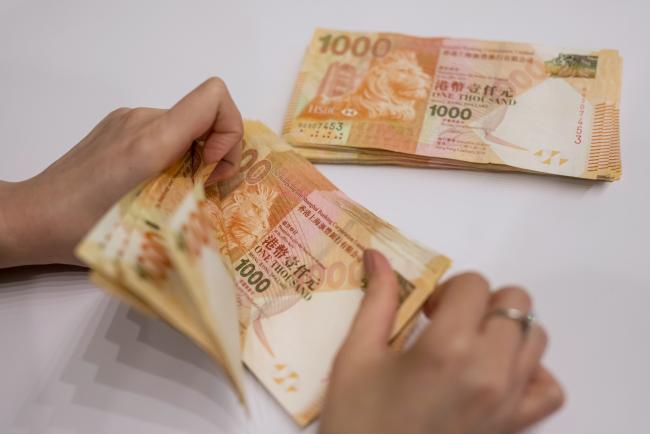(Bloomberg) -- Hong Kong’s dollar fell back into the weak half of its trading band as traders predicted the city’s recent liquidity squeeze is nearing its end.
The currency retreated 0.13% to 7.8095 as of 11:24 a.m. local time after closing stronger than the midpoint of its peg with the greenback for five sessions. Local interbank rates have dropped from decade highs. Tuesday’s move came as Hong Kong leader Carrie Lam said a proposed extradition bill that had triggered the city’ biggest protests in decades is now “dead.”
The Hong Kong dollar had strengthened as much as 0.9% from late May as the city’s supply of cash shrank, lifting local borrowing costs and hurting a popular short trade. Analysts cited looming share sales locking up funds and firms preparing to pay for dividends as the reasons money market rates surged. The tighter liquidity also coincided with the large protests.
Eddie Cheung, an emerging markets strategist at Credit Agricole (PA:CAGR) CIB, said the Hong Kong dollar “has room to weaken further.” “The worst part of the liquidity squeeze is behind us, and the market had been overestimating the tightening effect of IPOs in the first place,” he said. “There’s no strong catalyst for inflows in the stocks market either, suggesting a lack of support for the Hong Kong dollar.”
The Asia Pacific beer unit of Anheuser-Busch InBev NV aims to raise as much as $9.8 billion in the city, and Alibaba (NYSE:BABA) Group Holding Ltd. is said to have plans for a listing as large as $20 billion. Previous large share offerings have helped trigger jumps in local borrowing costs.
The Hong Kong dollar one-month interbank rate, known as Hibor, fell 2 basis points to 2.66107% on Tuesday. The rate tumbled 29 basis points, the most since January, to start the week.
